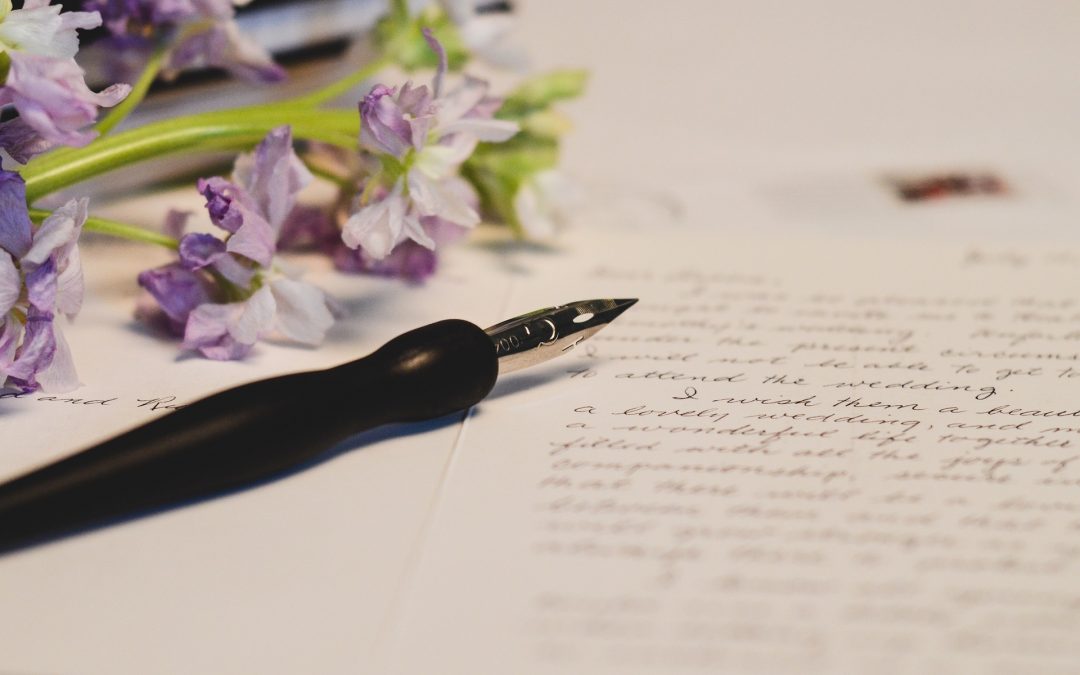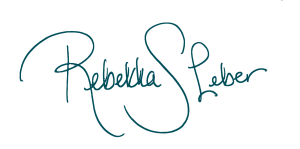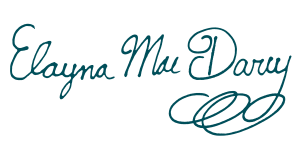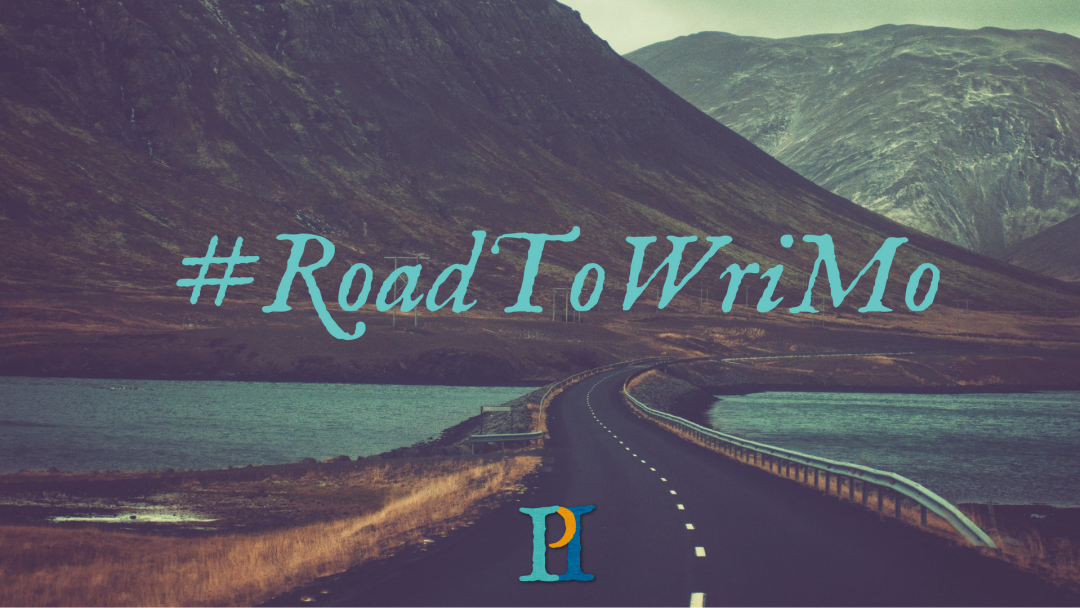Sit back and really think about this question: When was the last time you wrote something out by hand? Excluding a quick grocery list or a to-do note, when was the last time you actually sat down and wrote long hand?
Now, maybe you have an issue that makes writing difficult, like dysgraphia, and typing is the solution to that, but for those of us that have no real legitimate reason to not hand write, I have a follow up question: When did you stop writing by hand?
Think back. I’ll give you a minute…
I’m willing to bet I can pinpoint the exact moment, because it’s my moment too- my first computer. Am I right? Of course, I’m right.
When I was eleven, my family got our first computer, but when I was fourteen, I got my own computer for my birthday. It wasn’t much back then. The entire hard drive was only about 1 GB, if you can believe it. But, I still couldn’t wait to do three things: 1) Finally get AOL and join the rest of the planet, including all my friends on AIM; 2) install the original Sims (and eventually all eight expansion packs, including hundred of downloaded custom objects from the internet); 3) get writing. I had a whole collection of clear, multi-colored floppy disks with a different story on each by my next birthday. But, despite having my very own PC, I still never managed to entirely kick the habit of writing by hand.
I picked up the habit of writing in class when I was bored. This usually happened in my English and Spanish classes which were taught by the same teacher, and was also usually a result of me being bored in the middle of one of her “teachable moment” lectures. She did these from her desk and they took the place of an actual, worthwhile lesson, and was inspired by some idiotic thing one of her two idiot sons had done to get in trouble, again. The adult teacher in me loathes her for wasting time and depriving us of real educational content, but the high school student version of me appreciated getting an uninterrupted 83 minutes to write, since we were on the block system. Whenever I sensed one of these lectures coming, which could be easily be surmised based on her mood that morning, I’d flip back to the back of my 5-subject notebook, and let rip whatever idea was feeding off my brain like insect larva.
“…on average, those students who wrote by hand instead of typing wrote more, wrote faster, and more often successfully used complex sentences.”
My favorite thing about writing by hand is that you can do it anywhere, and you never have to worry about running out of battery, (which is also why my go to combat weapon against zombies is going to be a machete or my old school metal softball bat, because bats and blades don’t run out of bullets.) But wait… what if your pen runs out of ink? Well, good thing Pens are literally E’RYWHERE! Did you know some places give them out fo’ free? Grab a notebook and a pen and you can write at the library, a coffee shop, the park, in a car (not driving, people!), in a waiting room, a plane… basically anywhere with a relatively flat surface.
Yes, writing by hand has its downsides. I’ve cried over hand cramps. But, the day that I caught myself looking up to click the “undo” button while I was writing a note by hand, I knew I had a problem. For those people who are perpetual printers, handwriting may be slower for you than typing, but practice and time will fix that. The bigger thing to keep in mind is that since handwriting curricula have been removed from schools and we cut out of the Common Core standards while every school follows for learning objectives and moved over to focusing on typing skills in older students, scientists have been studying the long term effects this could have on writing, reading, and learning.
According to science, all of you writers who prefer typing… you’re doing writing wrong.
The Brain Benefits of Handwriting
The RAS
Inside our brains is a cluster of cells referred to as the RAS, the Reticular Activating System. This is just fancy talk for a part of the brain that is able to hyperfocus and filter out distractions. When we write by hand, it stimulates the RAS, which allows us to focus solely on the task itself. In other words, when we write by hand we are less distractable and able to be more efficient with our writing time, allowing us to be more productive in that time period.
Memory Recall
When I’m trying to get my students to remember a concept, I tell them to write it down. This is especially critical for my students with executive functioning issues, because that usually includes memory and recall. The physical act of writing something down forces your brain to engage with the material you are trying to learn, which means a higher chance of remembering it later without prompting.
Conceptual Thinking
My students suck at summarizing because they have been so rarely asked to do it. We’ve turned them into little copying monsters who write everything down verbatim and spit it back at us the same way.They are also the slowest writers of any generation. Notes that would take me a few minutes take then 5ever. But, when I was a kid, I got in the habit of writing my notes in my own words rather than the teacher’s (mostly, because in the case of my geography and science teachers, I thought I was better at summarizing and defining than they were). And, this is case in point for writing notes by hand. When you hand write notes, it prevents you from writing verbatim, or it slows you down. By summarizing, you’re forced to shorten them to keep u, focusing on using more purposeful words and trying to emphasize the most important points. This helps the recall, learning, and most importantly, understanding new material and the context. Writing letters by hand also improves literacy by helping you recall letters and words which strengthens reading comprehension.
Critical Thinking/Problem Solving
Long hand writing is slower for most people, which means that you also have to slow down . The benefit of this means you’re forced to slow down your thinking. This gives you time to focus on word choice, sentence structure, that funny line of dialogue you couldn’t stop laughing about
“According to science, all of you writers who prefer typing… you’re doing writing wrong.”
The Writing Benefits of Handwriting
According to a study conducted in 2009, students that wrote by hand rather than typing showed better writing skills than their peers who typed. The study was established to compare the common methods of transcription- the process of translating thoughts and ideas into writing. For reasons the scientists didn’t quite understand at the time, they discovered that on average, those students who wrote by hand instead of typing wrote more, wrote faster, and more often successfully used complex sentences.
One possible reason for this could go back to the RAS. Another study reported that when students wrote by hand, it activated the learning center of their brain. Writing by hand is much more taxing on the brain than typing because it requires the motor skills and memory recall necessary to identify and create the correct letter, and then string them together into words. This actually makes up smarter. Typing on the other hand merely trigger the muscle memory necessary to hit the correct key. I believe this is why when you are writing, especially by hand, and you get into The Zone, it’s simply that you have intensely activated your RAS, and have been able to eliminate all outside distractions to your particular task and the train of thought fueling your words.
This is the other beauty of handwriting- notebooks don’t have apps. It seems inevitable that when you are typing that at some point you will be sucked in by the black hole time suck we refer to as the internet. Sure, it starts innocently enough. One minute you’re looking up the meaning of the word or researching the background information on a topic you’re writing about, the next you’re watching YouTube because Google pulled up an Epic Rap Battle of History for the time period you were trying to research. If anyone knows how easy it is to go from background researching ancient mythologies to taking a Buzzfeed quiz to determine which badass mythical goddess I am, it’s this girl.
“…when we write by hand we are less distractable and able to be more efficient with our writing time, allowing us to be more productive in that time period.”
In general, handwriting is an exercise for strengthening cognitive ability. It keeps you sharp well into old age. It makes you more productive, producing higher word counts and better prose. Perhaps this is why famous writers such as Truman Capote (who was also a proponent of writing laying down) chose to write their first few drafts of stories long hand before typing. And, speaking of drafting, this brings us to the final writing benefit of handwriting- the process of transferring your hand written work into typed documents provides the opportunity for organic editing. Whenever I begin to type, I always manage to improve my writing by increasing word count and improving the language of the prose. Something about already having the most basic ideas out into the world on paper is freeing. Especially when I’m worried about forgetting an incredible idea and taking to time to write it all out before I can get distracted. The second time around when re-writing the material, once the pressure of getting all the “good” stuff down is gone, I’m able to go deeper into the idea and produce the “better” stuff.
At the end of the day, writing will inevitably have to be typed. No publishing house, no matter how indie, will ever accept a handwritten manuscript. But, there is strong argument for writing by hand, even if it’s just in the beginning, when you’re taking notes, plotting, or creating characters. Personally, I find it easier to hand write first and type second, which to my writing compatriots is a novelty in itself. They always comment on it, nearly shocked, always repeating the same exclamation- “You write by hand?!” Yes I do, and I always will. In the long run, does it take longer? Who knows? We all have different editing processes. But, there is just something hypnotic and methodical about the act of putting a smooth, fluid, brightly colored pen to college ruled paper that I cherish.
Links and Sources:
https://www.theguardian.com/science/2014/dec/16/cognitive-benefits-handwriting-decline-typing
http://mentalfloss.com/article/33508/4-benefits-writing-hand
https://www.nytimes.com/2014/06/03/science/whats-lost-as-handwriting-fades.html
https://www.pens.com/blog/the-benefits-of-handwriting-vs-typing/#.WzP15Egvy
https://lifehacker.com/5738093/why-you-learn-more-effectively-by-writing-than-typing
https://www.huffingtonpost.com/bernd-brunner/famous-author-who-wrote-l_b_4555808.html
https://www.futurity.org/for-kids-pens-mightier-than-keyboard/









